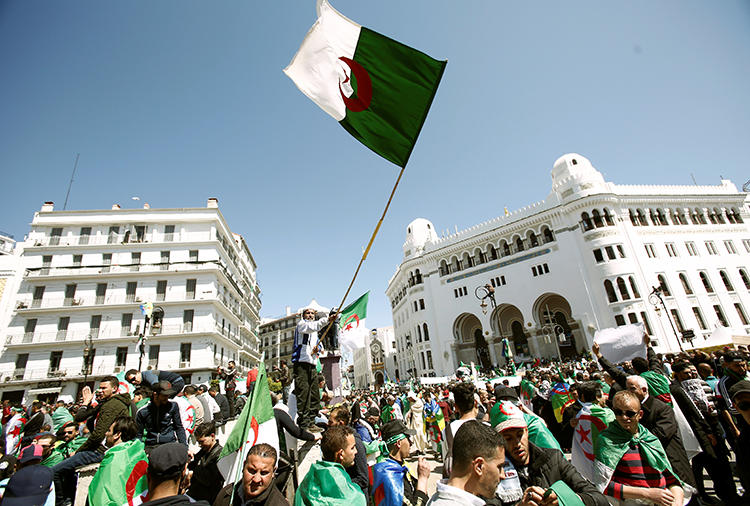New York, April 4, 2019 — The Committee to Protect Journalists today condemned the detention and expulsion of two Tunisian journalists from Algeria and called on Algerian authorities to allow the foreign press to freely cover demonstrations in the country.
Reuters reporter Tarek Amara was arrested, detained, and expelled from the country in late March, according to a statement from Reuters. Intissar Chelly, a news correspondent at the Turkish state-owned broadcaster TRT, was detained at an airport upon arrival and then sent back to Tunisia on March 12, she told CPJ. Both journalists are Tunisian nationals, and had traveled from Tunisia to cover the ongoing anti-government protests in Algeria, according to Chelly and news reports.
Algerian President Abdelaziz Bouteflika resigned from office on April 2, but the anti-government protests have continued, according to news reports.
“Algerian authorities’ arrest and expulsion of foreign journalists will not quell the ongoing unrest in the country, and will certainly not improve their image in the rest of the world,” said CPJ Middle East and North Africa Program Coordinator Sherif Mansour from Washington, D.C. “Algerian authorities should cease harassing foreign media outlets, and view the protests as an opportunity to improve their press freedom record.”
Amara was arrested by authorities in Algiers on March 30, following a government official’s complaint about a Reuters report on March 29 concerning the protests, according to Reuters and news reports. He was detained until he was put on a flight back to Tunisia on March 31, according to those reports.
The unnamed official denied that one million people had participated in a protest, as Reuters had reported; according to a statement from the news agency, Reuters stands by its coverage.
Chelly was detained by immigrations officers upon her arrival at Houari Boumediene Airport, in Algiers, on the morning of March 12 and was interrogated about her political views and her opinions of the Algerian government and the ongoing protests, the journalist told CPJ.
Chelly told CPJ that immigrations officers confiscated her cellphone and passport, and did not allow her to contact her family or employer. She said the detention lasted five to six hours, after which she was put on a flight back to Tunisia.
TRT did not immediately respond to CPJ’s emailed request for comment.
The Algerian Ministry of Communications, Ministry of Interior, and Houari Boumediene Airport did not respond to CPJ’s emailed requests for comment.
When protests began in Algeria in February, authorities barred mainstream television and radio stations from covering the unrest, prompting journalists to stage anti-censorship demonstrations, as CPJ reported at the time.
